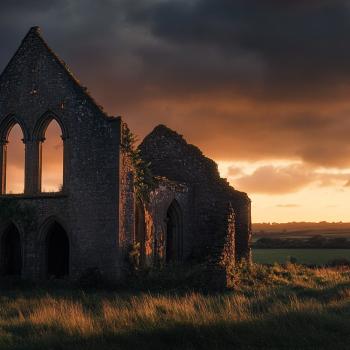 King Arthur: “Tell me, Merlin, have we defeated evil, as it seems we have?”
King Arthur: “Tell me, Merlin, have we defeated evil, as it seems we have?”
Merlin: “Good and evil, there never is one without the other.”
King Arthur: “Where lies evil, then, in my kingdom?”
Merlin: “Always…where you never expect it. Always.”
“Excalibur” 1981, Directed by John Boorman
‘Tis the season. Thanksgiving is behind us, and so begins the sense-assaulting, relentless campaign of shameless materialism and over-indulgence masquerading as a holiday. At least that is what it can often seem from an observer’s point of view. I also view this time of year as a chance to bring light to the darkness; there are so many in our communities that need help in times such as this. The true gift of this season is its power to bring out the best in us, where our compassion and thoughtfulness are prodded into a more intensified state. For many of us, it is also a time when we feel a sense of deep peace and relaxation when we act on our charitable impulses, and when we gather with and in many cases reunite with those who mean the most to us, eating, singing, and reflecting on the season, its origins, and its deeper meanings. It is also when we must be most on our guard—against evil.
It may, as the title of this essay suggests, seem unexpected to read an essay about evil so close to Christmas. Such topics should be set aside during this most festive season of the year, should they not? Shouldn’t we just lose ourselves in the myriad of joys that surround us and set aside our stresses and problems, if only for a brief while? If only we had such a luxury. See that’s exactly what evil wants us to do. It wants us to turn our backs on it, to let us believe that the power of…(fill in blank with the feeling of choice here: love, peace, joy, etc.) will banish it, and everlasting love/peace/joy will cover the globe like a beautiful shroud for ever and ever. That will never be the case. Never. At least not while human beings walk this globe. For we, in the final analysis, are evil’s source. It is not some metaphysical power external to us that tempts us to do wrong. Other animals may kill and eat one another, but they do not do so out of spite or malevolence. They do so to survive. We alone are capable of acts of such atrocity that they can barely be contemplated. This is all the more reason why they must be contemplated.
Why be such a downer so close to the holidays, you ask? I can’t actually think of a better time to reflect on this. Our guards are down. Where there is joy in giving, there is evil in greed. Where there is comfort in plenty, there is sorrow in want. That sorrow can lead to resentment, or even hate, if not tempered by an understanding of evil’s existence and its many manifestations. We can only guard against it if we learn to recognize it in ourselves; each of us has the capacity for it. It’s true, and it’s a bitter pill to swallow. That certainly isn’t to say that we are all about to run out and do evil things at the slightest temptation; it is to recognize that, given that we are human, there are circumstances that, if severe enough, could reveal a side of ourselves we might not consciously recognize is there when things are going well.
All evil acts—from the Holocaust to the Gulags of Russia, from the rape of Nanking to the My Lai massacre, from the Columbine High School shootings to the September 11th attacks–were perpetrated by human beings. We are all human beings. We all have such capacities. We must not be so self-righteous to believe that we could never do evil things because we are just “not like that.” If driven to extremity under just the right conditions, we might do what we now might consider unconscionable out of desperation. If we do things we know are wrong under normal conditions because we believe we might get away with them (and we have all done that on some level), then what might we be capable of if those conditions change to a significant enough degree? That should be a terrifying thing to contemplate. Hopefully, as few people as possible will ever be driven to the edge of such action—or over it. Yet we see it happening every day. Just turn on the news to see yet another incomprehensible act of evil broadcast for all the world to see. We wince and say “that’s just horrible!” And it is, all the more so because deep inside of each of us is the seed of what, if left unchecked, could grow forth in the unweeded garden, contributing to what is rank and gross in nature, possessing the world. Did you ever expect you had some evil within you? Merlin did.
Psychology professor Jordan Peterson touches on this theme frequently in lectures and presentations, and he could be paraphrased by stating that once we learn that we are capable of evil, then we are never the same; we can’t be good people until we know just how much evil is contained within us. We have to understand our own capacity for evil for us to be able to realize what “good” is. Why would we be serious enough to pursue what is good, Peterson says, unless we had some sense of the consequences of not pursuing it? To that end, we should each of us devote some time to a study of human evil. We should read about the greatest atrocities ever committed so that we come to an understanding of just what human beings have been capable of over the course of history. Then, when we experience our own dark times and come face to face with our “shadow” as Carl Jung called it—our dark side—we will know it for what it is and be able to bring it under our control before it once again lashes out at the world and others in it.
. . . . .
I have always enjoyed scary movies. I can’t fully explain why. With all the real suffering and evil in the world, why would we have to create it in fictional form, and why would people flock to theaters to see it unleashed? Yet scary stories have an unquestionable appeal. In fact, suspense/horror films are undergoing something of a resurgence in popularity today. Case in point is Stephen King. What is the secret to the popularity of his work (beside his being one of the best character writers I have ever read)? What is it that draws us to stories of killer clowns, vampires, devastating illnesses that wipe out the world’s population—or just seemingly ordinary people who do evil things? If such stories were derided as trash not deserving of our attention, they wouldn’t get published in the first place, let alone still be in print, be national bestsellers, and spawn film franchises. Is it because good triumphs over evil in the end? Do the stories feed our hope that good will eventually win out –even temporarily–if we just stand against it bravely? Is it because the manifestations of evil in films appear as though they can be defeated, where deep down we know that real evil can’t be, so we are drawn to the false hope the films offer? Rarely in such films is the evil ever really defeated (sometimes it even wins), so the hope argument doesn’t hold up. Except that there is good in us too, and we have hope that the good will prevail for a time. We don’t fight against evil because we think we will defeat it—we fight it because it is evil.
One of the most fascinating examples in film of evil made manifest is Michael Myers from John Carpenter’s 1978 classic “Halloween.” This character’s face is never seen (he wears a mask), his voice is never heard. He walks—never runs—after random individuals who cross his path, and inexplicably kills them. There is no motive, no rhyme or reason to what he does. He also can’t be stopped. He is shot six times, but escapes all the same. He is seemingly injured or knocked unconscious at times, but you had better not turn your back on him or let your guard down, because as soon as you think you’ve defeated him, he rises up and keeps coming. To me, the Michael Myers character is what evil would be if you could strip away all of someone’s capacity for good and only the shadow was left. Let us thank whatever gods may be that this doesn’t happen outside of the movie theater—an unstoppable, unkillable, pure manifestation of evil running loose among us. That is probably what has contributed to the film’s enduring legacy—it presents a figure more terrifying than almost any other ever conceived. The character of Michael Myers is an enigma; we know nothing of him or what drives him. The mask on his face is blank and expressionless. He cannot be reasoned with or stopped. He is evil itself. The evil in this film (spoiler alert) is not defeated. It goes on, as real evil always does. We as the moviegoers come home, lock our doors, and keep looking over our shoulders out the window or down the dark hallway in search of the shadow we know both is and isn’t there. We know Michael Myers isn’t real, but evil is, and it’s already in the house with us. So does going to “Halloween” help us suppress that real evil within us by making us aware, on some level, that it’s there? Perhaps so. Certainly it lacks the power of reading or watching a documentary about a real figure or event, but we are a storytelling people, and some stories appeal to us on a subconscious level—we know when they are presenting us with ideas with which it is necessary for us to grapple.
The battle between good and evil is one of the most ancient archetypes, resonating down through the centuries in countless tales from The Odyssey to Star Wars. Luke Skywalker himself, when training with Jedi Master Yoda to learn the ways of the Force, asks: “Is the dark side stronger?” Yoda responds: “No, no. No. Quicker. Easier. More seductive.” Following the evil path is always the easier road. Destroying has always been easier than creating. It is easy to succumb to our vices, and they are relentless. To deny them, to have the self-discipline to turn away from instant gratification and take the longer and more difficult path toward virtue, consistently, is a much more difficult road. It is also the truly rewarding one. The path of temptation, of vice—of evil—leaves us empty of all but regret. It pulls on all of us, all the time, whispering in our ears and making false promises. As the rewards of the disciplined, virtuous path are less immediate and not as physically gratifying, it can be easy to say “Just this once,” and then feed the evil inside of you. When you feed animals like that, they come back for more—and they grow stronger.
The battle between good and evil is a spiritual one; it is raging within each one of us on a daily basis. We should each make it part of our daily spiritual practice to reflect on how, to any degree, evil took hold of us today. Did a destructive emotion such as anger overcome our reason and force us to say or do something that we now regret? If so, we mustn’t let this unleashed evil fester between ourselves and those we hurt. We have to apologize, talk about it, and clear the air. We have to take its power away and banish it from living memory as fast as we can, replacing it with humility, contrition, compassion, and love. We also have to remember what released it, and vow to recognize those feelings in ourselves so that we are better able to control them in the future. Suppressing the seeds of evil takes constant discipline and vigilance. It takes knowledge and experience. It takes courage. In time, when it is no longer being fed, the evil in us will grow too weak to make itself seen or heard. We can’t kill it, but we can take from it all that gives it strength. Better that it brood deep down inside us than be able to surface and act.
Though Hamlet saw the world as a rank, corrupted garden, he also saw the beauty in mankind: “What a piece of work is a man! How noble in reason, how infinite in faculty, in form and moving how express and admirable, in action how like an angel, in apprehension how like a god — the beauty of the world, the paragon of animals!” We are capable of so much greatness. Yoda was right; the dark side isn’t stronger. It’s patient, though. Well, let it wait. If we can keep it bored enough, it just might go to sleep. For a long, long time.
This holiday season, bring your light forth to banish the darkness. Give generously. Help others. Reach out with your compassion and let people know that there is still a whole lot of good in the world—because this world is worth fighting for. As the Lord of Darkness in the 1985 movie “Legend” reminded us: “You think you have won? What is light without dark? I am a part of you all. You can never defeat me. We are brothers…eternal.” Quite true. And then there was light–and it was good.
Happy Holidays everyone. Peace be with you.
Learn about Membership in the Spiritual Naturalist Society
__________
The Spiritual Naturalist Society works to spread awareness of spiritual naturalism as a way of life, develop its thought and practice, and help bring together like-minded practitioners in fellowship.
















